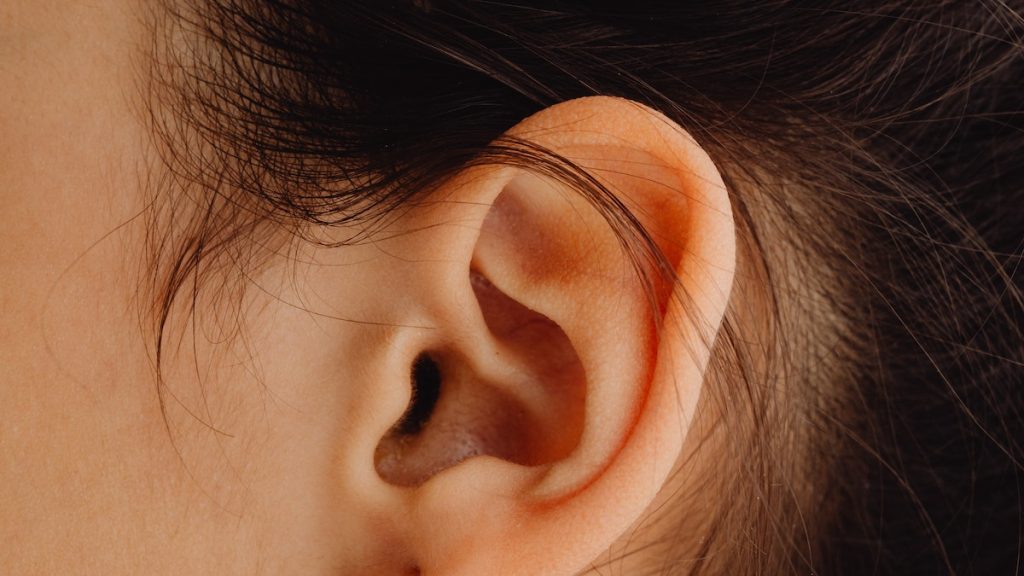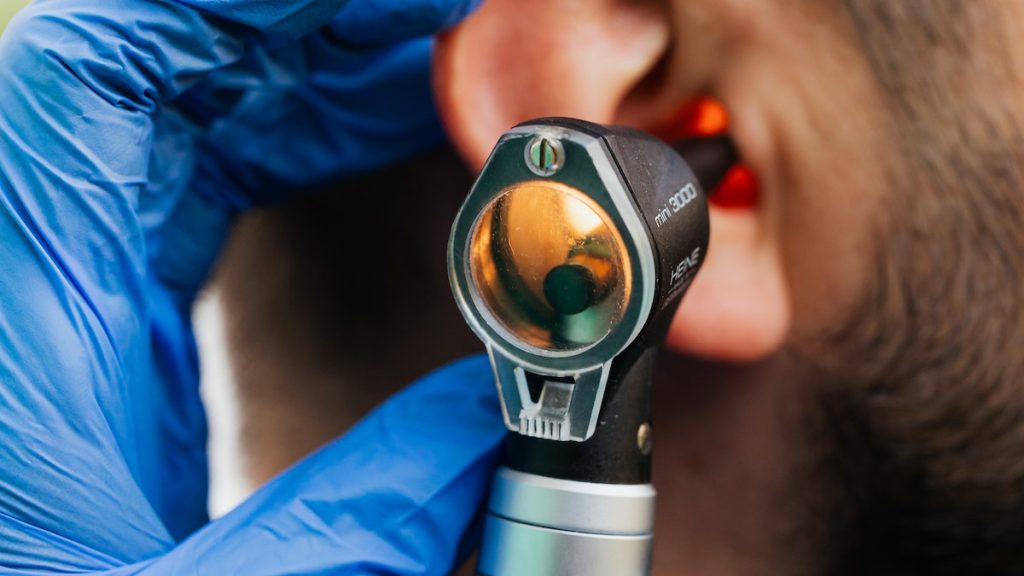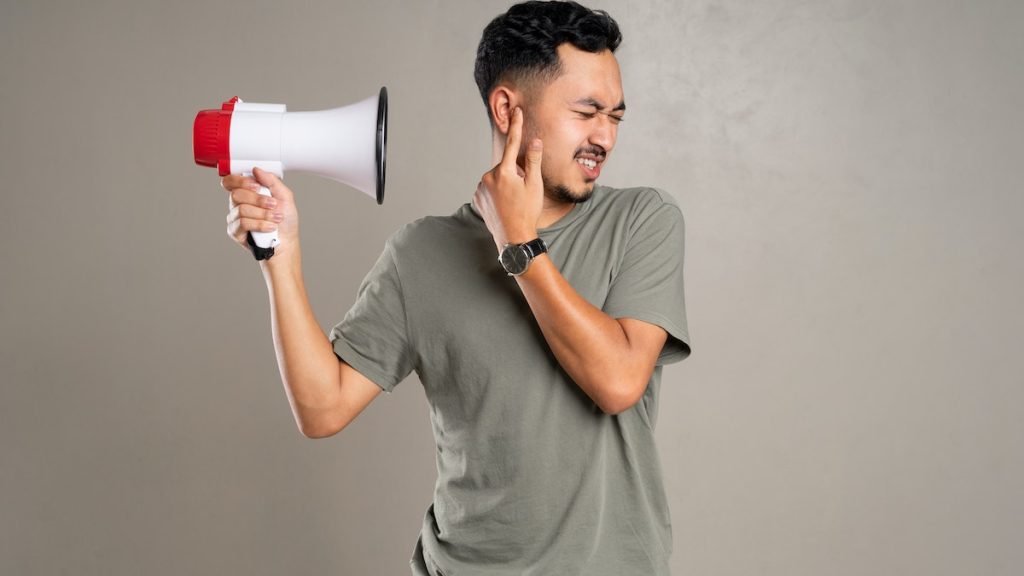Table of Contents
Ear ringing, also known as tinnitus, is a common condition that affects millions of people worldwide. This condition is characterized by a ringing, buzzing, or whistling sound in the ear, which can be very distressing and disruptive to daily life. In this article, we will discuss one specific type of tinnitus, ear ringing left. We will cover its causes, symptoms, and various treatments available.

What is Tinnitus?
Medical history and physical exam
The first step in evaluating tinnitus is to take a thorough medical history and perform a physical exam. This can help identify any underlying medical conditions that may be contributing to tinnitus, such as high blood pressure or ear infections.
Hearing tests
A hearing test, also known as an audiogram, is typically performed to evaluate tinnitus. This test measures the range of sounds that can be heard, including the specific frequency and loudness of the tinnitus. This can help determine if there is any hearing loss associated with tinnitus.
Imaging tests
In some cases, imaging tests such as an MRI or CT scan may be ordered to evaluate tinnitus. These tests can help identify any structural abnormalities in the ear or brain that may be causing tinnitus.
Tinnitus questionnaires
There are several questionnaires available that can help evaluate the impact of tinnitus on daily life. These questionnaires can help determine the severity of tinnitus and how it is affecting the quality of life.
Tinnitus matching
Tinnitus matching is a process where the sound of the tinnitus is matched to a specific frequency and loudness. This can help identify the underlying cause of tinnitus and determine appropriate treatment options.
Types of tinnitus
There are two main types of tinnitus: subjective and objective.
Subjective tinnitus is the most common form of tinnitus and is only heard by the person experiencing it. It is often associated with damage to the inner ear or auditory nerve and can be caused by exposure to loud noise, age-related hearing loss, ear infections, and certain medications.
Objective tinnitus, on the other hand, is a rare form of tinnitus that can be heard by other people, as well as the person experiencing it. It is often caused by a physical abnormality or irregularity in the blood vessels or muscles in the ear, head, or neck. Objective tinnitus can also be caused by certain medical conditions, such as high blood pressure, anemia, or atherosclerosis.
Tinnitus can also be categorized into different subtypes based on the nature and characteristics of the sound. Some of these subtypes include:
Tonal tinnitus
This type of tinnitus is characterized by a continuous, steady, and constant sound, such as a ringing, buzzing, or humming.
Pulsatile tinnitus
This type of tinnitus is characterized by a rhythmic sound that is synchronized with the person’s heartbeat. It is often caused by a blood vessel disorder or muscle spasms.
Musical tinnitus
This type of tinnitus is characterized by the perception of music or singing in the absence of external sound. It is often associated with hearing loss and damage to the inner ear.
Clicking tinnitus
This type of tinnitus is characterized by a clicking or popping sound in the ear. It is often associated with muscle spasms or abnormalities in the middle ear.
Tinnitus: Symptoms, Causes, and Treatments
Causes
Exposure to loud noises
exposure to loud noises, such as loud music, explosions, or gunfire, can damage the delicate structures in the inner ear and cause tinnitus.
Aging
as we age, the sensory cells in our ears can deteriorate, leading to tinnitus.
Earwax buildup
a buildup of earwax can cause tinnitus, as it can block sound waves from reaching the inner ear.
Ear infections
infections of the ear can cause inflammation and damage to the inner ear, leading to tinnitus.
Meniere’s disease
this condition affects the inner ear and can cause hearing loss, dizziness, and tinnitus.
Symptoms
The symptoms of ear ringing left can vary from person to person. Some common symptoms include:
- Ringing, buzzing, or other sounds in the ears
- Hearing loss
- Dizziness or vertigo
- Difficulty sleeping
- Anxiety or depression
Treatment

Hearing aids
hearing aids can help amplify external sounds and reduce the perception of tinnitus.
White noise machines
these machines can provide background noise that can help mask the ringing or buzzing sound of tinnitus.
Cognitive behavioral therapy (CBT)
CBT can help individuals manage their reactions to tinnitus and reduce the perceived severity of symptoms.
Medications
some medications, such as antidepressants or anti-anxiety drugs, may be prescribed to help manage the symptoms of tinnitus.
Alternative therapies
some alternative therapies, such as acupuncture or hypnosis, may be helpful in managing tinnitus symptoms.
Relief Remedies For Tinnitus
Tinnitus is a condition that causes a ringing, buzzing, or whistling sound in the ear, which can be very distressing and disruptive to daily life. While there is no cure for tinnitus, there are several relief remedies that can help manage the symptoms. In this article, we will discuss some of the most effective relief remedies for tinnitus.
Sound therapy
White noise machines
These machines produce a steady, low-level sound that can help mask tinnitus.
Nature sounds
Sounds of nature, such as ocean waves or bird songs, can help create a calming environment and reduce the impact of tinnitus
Music
Soft, calming music can help distract from the ringing in the ear and promote relaxation.
Cognitive-behavioral therapy
This therapy focuses on changing negative thought patterns and reactions to tinnitus, helping to reduce the impact it has on daily life. A therapist can teach techniques for relaxation, stress reduction, and mindfulness that can help manage tinnitus symptoms.
Medications
Certain medications, such as antidepressants or antianxiety drugs, can help reduce the severity of tinnitus. It is essential to consult with a doctor before taking any medication for tinnitus, as some medications may have side effects or interact with other medications.
Hearing aids
For those with hearing loss, hearing aids can help improve overall hearing and reduce the impact of tinnitus. By amplifying external sounds, hearing aids can help mask the ringing in the ear and make it less noticeable.
Lifestyle changes
Avoiding exposure to loud noise
Wear earplugs or other hearing protection when exposed to loud noise, such as at concerts or sporting events.
Limiting caffeine and alcohol intake
Caffeine and alcohol can worsen tinnitus symptoms in some people.
Managing stress
Stress can exacerbate tinnitus symptoms, so it is essential to find ways to manage stress, such as through exercise, meditation, or yoga.
Can Tinnitus Be Prevented?

Protect your ears from loud noise
Exposure to loud noise is one of the most common causes of tinnitus. By wearing earplugs or other hearing protection, you can reduce the risk of developing tinnitus. If you work in a noisy environment, it is essential to wear hearing protection at all times.
Avoid ototoxic medications
Certain medications, such as aspirin or antibiotics, can cause tinnitus as a side effect. It is important to consult with a doctor before taking any medication, especially if you have a history of tinnitus.
Maintain a healthy lifestyle
A healthy lifestyle can help reduce the risk of developing tinnitus. This includes getting regular exercise, eating a healthy diet, and avoiding smoking.
Manage stress
Stress can exacerbate tinnitus symptoms, so it is important to find ways to manage stress, such as through exercise, meditation, or yoga.
Protect your head
Head injuries can cause tinnitus, so it is important to wear protective headgear when participating in sports or other activities that may pose a risk of head injury.
HOW IS TINNITUS EVALUATED?
Medical history and physical exam
The first step in evaluating tinnitus is to take a thorough medical history and perform a physical exam. This can help identify any underlying medical conditions that may be contributing to tinnitus, such as high blood pressure or ear infections.
Hearing tests
A hearing test, also known as an audiogram, is typically performed to evaluate tinnitus. This test measures the range of sounds that can be heard, including the specific frequency and loudness of the tinnitus. This can help determine if there is any hearing loss associated with tinnitus.
Imaging tests
In some cases, imaging tests such as an MRI or CT scan may be ordered to evaluate tinnitus. These tests can help identify any structural abnormalities in the ear or brain that may be causing tinnitus.
Tinnitus questionnaires
There are several questionnaires available that can help evaluate the impact of tinnitus on daily life. These questionnaires can help determine the severity of tinnitus and how it is affecting the quality of life.
Tinnitus matching
Tinnitus matching is a process where the sound of the tinnitus is matched to a specific frequency and loudness. This can help identify the underlying cause of tinnitus and determine appropriate treatment options.
Medical conditions
Meniere’s disease
This is a disorder of the inner ear that can cause vertigo, hearing loss, and tinnitus.
Temporomandibular joint (TMJ) disorder
This disorder affects the jaw joint and can cause pain, clicking, and popping in the jaw, as well as tinnitus.
Acoustic neuroma
This is a non-cancerous tumor that develops on the nerve that connects the ear to the brain. It can cause hearing loss, tinnitus, and balance problems.
Otosclerosis
This is a condition where the bones in the middle ear become fixed and can cause hearing loss and tinnitus.
Head and neck injuries
Trauma to the head or neck can cause damage to the structures in the ear and can result in tinnitus.
High blood pressure
This condition can cause pulsatile tinnitus, which is synchronized with the person’s heartbeat.
Thyroid disorders
Disorders of the thyroid gland can cause tinnitus, as well as other symptoms such as fatigue, weight changes, and mood changes.
PREVENTION TIP
Protect your ears from loud noise
Exposure to loud noise is one of the most common causes of tinnitus. You can reduce the risk of developing tinnitus by wearing earplugs or other hearing protection when in loud environments, such as concerts or construction sites.
Avoid ototoxic medications
Certain medications, such as aspirin or antibiotics, can cause tinnitus as a side effect. Before taking any medication, it is important to consult with a doctor, especially if you have a history of tinnitus.
Maintain a healthy lifestyle
A healthy lifestyle can help reduce the risk of developing tinnitus. This includes getting regular exercise, eating a healthy diet, and avoiding smoking and excessive alcohol consumption.
Manage stress
Stress can exacerbate tinnitus symptoms, so it is important to find ways to manage stress, such as through exercise, meditation, or therapy.
Protect your head
Head injuries can cause tinnitus, so it is important to wear protective headgear when participating in sports or other activities that may pose a risk of head injury.
Get regular hearing tests
Regular hearing tests can help identify any hearing loss or damage that may be contributing to tinnitus. Early detection and treatment of hearing loss can help prevent tinnitus from developing or worsening.
Avoid prolonged exposure to loud music
Listening to music at high volumes for prolonged periods of time can increase the risk of developing tinnitus. It is recommended to listen to music at a lower volume and take regular breaks to give your ears a rest.
AVOID COTTON SWABS
Another important prevention tip to reduce the risk of developing tinnitus is to avoid using cotton swabs or other objects to clean your ears. Cleaning your ears with cotton swabs can actually push earwax deeper into your ear canal, leading to blockages and potential damage to the delicate structures of the ear.
Instead, it is recommended to let the earwax naturally migrate out of the ear canal on its own. If you feel that you have excess earwax buildup or are experiencing symptoms such as ear pain or hearing loss, it is important to seek medical attention from a qualified healthcare professional.
Understanding the Spiritual Significance of Ringing in the Left Ear
In spiritual circles, ringing in the left ear is often considered a sign of something significant about to happen in your life. Some people believe that it’s a message from the universe or your guardian angels, indicating that you should pay attention to what’s going on around you.
Others believe that the left ear is associated with receiving messages from the spiritual realm. Therefore, hearing ringing in the left ear could mean that you’re about to receive some sort of message or guidance from a higher power.
FAQs
Is ear ringing left a serious condition?
Ear ringing left is not usually a serious condition, but it can be a symptom of an underlying health issue. If you are experiencing persistent ear ringing, it is important to speak to your doctor to rule out any serious conditions.
Is there a cure for ear ringing left?
There is no specific cure for ear ringing left, but there are many possible treatments that can help alleviate symptoms.
Can stress or anxiety cause ear ringing left?
Yes, stress and anxiety can be contributing factors to ear ringing left. Learning coping mechanisms to manage stress can be helpful in managing symptoms.
Can diet or lifestyle changes help with ear ringing left?
Some studies suggest that a healthy diet and lifestyle changes, such as reducing caffeine and alcohol intake, may help alleviate symptoms of tinnitus.
How can I prevent ear ringing left?
Avoiding exposure to loud noises, wearing ear protection in noisy environments, and managing stress levels may help prevent ear ringing left in some cases.
Conclusion
Ear ringing left, or left-sided tinnitus is a common condition that can be caused by a variety of factors. It can be a frustrating and distracting symptom, but there are many possible treatments available. If you are experiencing ear ringing left, it is important to speak with your doctor to determine the underlying cause and develop an appropriate treatment plan.



